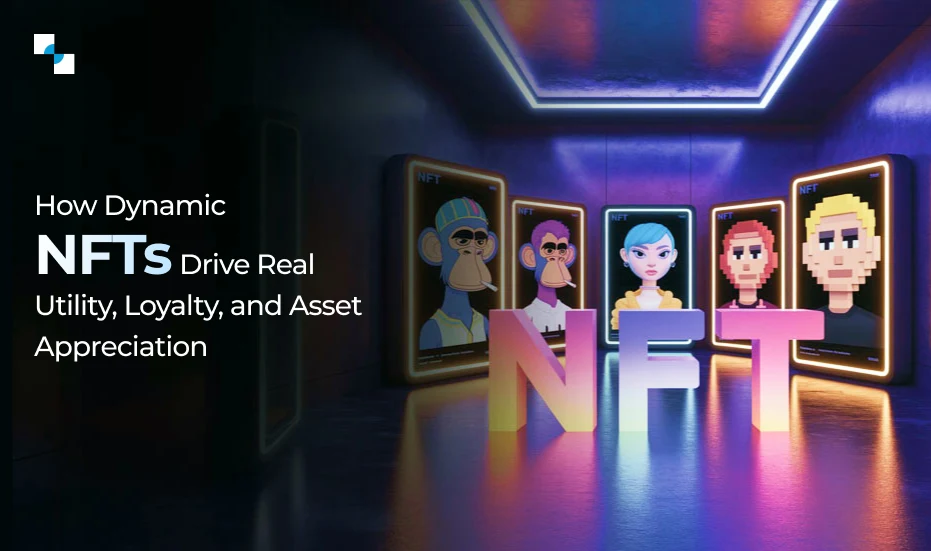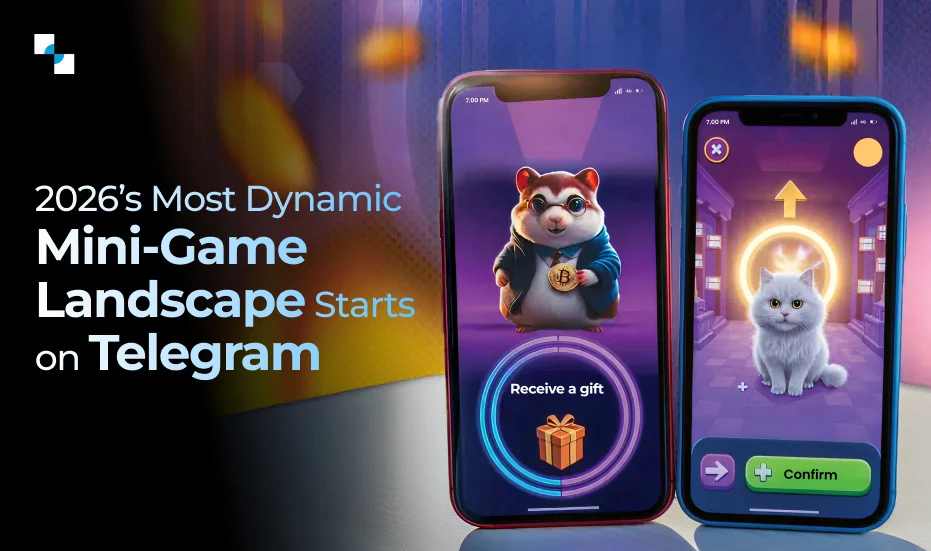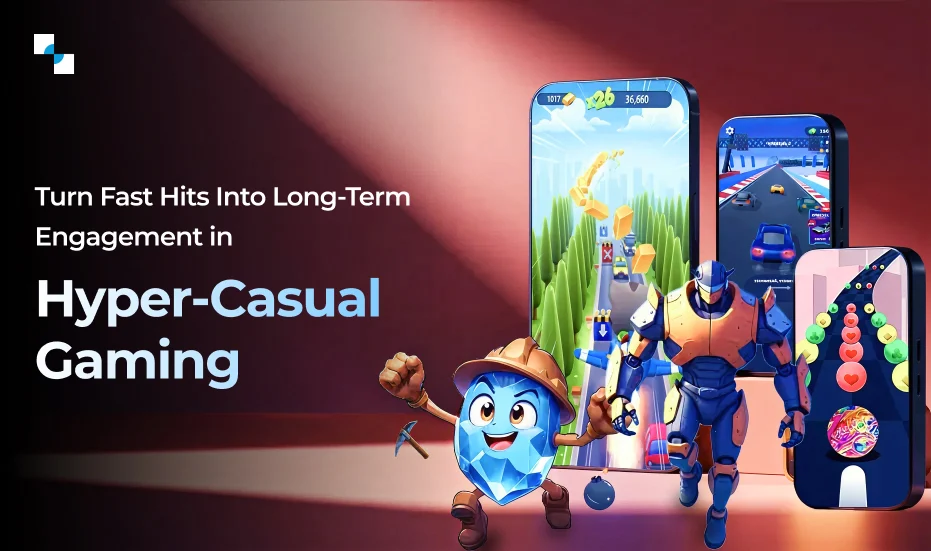Role-Playing Games (RPGs) have been appealing to gamers since the early days when they were seen as a fantastic way of enacting roles given to fictional characters in highly perceived worlds. The role playing games market is anticipated to witness substantial growth, with the market volume estimated to reach US$70.73bn by 2027.
What are RPG Games?
RPG Games are a genre of video games in which the players take on roles of fictional characters within a game world. Often, these characters have unique attributes, skills, and abilities that can be developed and customized as the game progresses. RPG games usually have a strong narrative, often with branching storylines and choices that determine the outcome of the game. Players can explore huge and interactive environments, fight enemies, solve puzzles, and talk to non-player characters to move forward in the game.
Benefits of Role Playing Game Development
Role playing game development has several benefits for the players and the developers. Some of the main advantages are:
1. Creative Expression and Storytelling
- Immersive Storytelling: RPG games provide a canvas for rich and engaging narratives. Developers can weave intricate storylines, craft compelling characters, and construct immersive worlds that captivate players and offer unique gaming experiences. The focus on narrative allows for creative exploration and the development of compelling fictional universes.
- Player Agency and Choice: RPG games often give the player a great deal of agency, allowing them to make choices that shape the narrative and affect the game world. This kind of player-driven storytelling fosters a sense of ownership and investment in the game, making the experience truly personal.
- World-Building: RPG Games frequently feature deep and detailed lore, creating rich and believable game worlds. This world-building can be a source of fascination for players, providing a foundation for expansive and engaging gameplay. The creation of intricate backstories, cultures, and histories adds depth and complexity to the game world.
2. Gameplay Mechanics and Innovation
- Character Development and Customization: Role playing game development generally allows the players to personalize their characters. The player may select the class, race, skills, and attributes of his character. Customization gives the players a feeling of individuality and allows them to personalize the game experience to suit their preference. It also inspires experimentation and provides a creative expression in the game world.
- Challenging gameplay and progression: RPG Games feature challenges such as very difficult combat systems, challenging puzzles, and very rewarding systems. Such systems challenge players, create a feeling of accomplishment when conquering them, and push the limits of what players know. Players tend to become locked into this flow and stay engaged for more.
- Innovation and Experimentation: The space for developing role playing games is very innovative and experimental. Every role playing game development company always tries to innovate and experiment in the genre by introducing new gameplay mechanics, storytelling techniques, and technological advancements. This keeps the genre fresh and exciting and introduces new and engaging experiences for players.
3. Business and Market Opportunities
- Large and Growing Market: The growth of the role playing game development market is huge with many business development opportunities for game developers. Moreover, the vast and growing adoption of RPG games on different available platforms provides opportunities for developers who are interested to explore this fast-growing market, as the overall demand for high-quality RPG is high.
- Long-Term Engagement and Revenue Streams: RPG games tend to have a long shelf life, where players spend countless hours on characters and gameplay. This long-term engagement can easily translate into long-term revenue streams for developers in the form of in-game purchases, expansions, and other monetization strategies. A dedicated player base is likely to be a consistent source of revenue and support for continued game development.
- Community Building and Fan Engagement: RPG games develop strong communities from players who will be passionate in the game’s world and the lore. Community feedback can significantly contribute to further game development; it is always a source for continuous engagement, and marketing as well for game developers. One can get valuable information by engaging in the community, inspire loyalty among customers, and market organically.

Popular RPG Games
1. Fallout: New Vegas
Overview Released in 2010, Fallout: New Vegas is a post-apocalyptic RPG set in a world devastated by nuclear war. Players navigate the Mojave Wasteland, making choices that affect the game’s outcome. The game is notable for its deep narrative and branching storylines, allowing players to align with different factions.
Gameplay Features
- Open World Exploration: Players can roam freely across the expansive map.
- Character Customization: Extensive options for character creation and development.
- Moral Choices: Decisions impact relationships with factions and NPCs, leading to multiple endings.
Fallout: New Vegas serves as an excellent example of how successful role playing game development can blend compelling narratives with player agency.
2. Genshin Impact
Overview Launched in 2020, Genshin Impact combines action RPG elements with gacha mechanics. Set in the fantasy world of Teyvat, players control multiple characters with unique abilities as they explore vast landscapes and complete quests.
Gameplay Features
- Elemental Combat System: Players can switch between characters to utilize different elemental powers.
- Multiplayer Mode: Cooperative play allows friends to join forces in exploring the world.
- Regular Updates: Continuous content additions keep the game fresh and engaging.
The success of Genshin Impact highlights the importance of ongoing support and updates in role playing game development.
3. The Elder Scrolls V: Skyrim
Overview Skyrim, released in 2011, is a landmark title in the RPG genre known for its open-world design and rich lore. Players assume the role of the Dragonborn, tasked with saving the world from dragons while navigating a complex political landscape.
Gameplay Features
- Immersive World: A vast environment filled with quests, dungeons, and lore.
- Skill Progression: Players can develop skills in various areas such as combat, magic, and crafting.
- Modding Community: A robust modding scene enhances gameplay and adds new content.
Skyrim exemplifies how a strong foundation in role playing game development, coupled with a vibrant modding community, can lead to enduring player engagement.
4. Diablo IV
Overview Set for release in June 2023, Diablo IV marks a return to the franchise’s dark roots. This action RPG emphasizes an open-world experience where players can engage in both PvE and PvP content.
Gameplay Features
- Shared World Elements: Players can encounter others in a persistent world.
- Character Classes: Multiple classes offer diverse playstyles and strategies.
- Seasonal Updates: Regular content updates introduce new challenges and rewards.
Diablo IV represents a new direction in role playing game development for the franchise, focusing on a shared world experience and continuous content updates.
5. Baldur’s Gate 3
Overview Released in August 2023, Baldur’s Gate 3 is based on Dungeons & Dragons mechanics, allowing players to experience a rich narrative-driven RPG. The game features turn-based combat and deep character customization.
Gameplay Features
- Interactive Storytelling: Choices significantly affect character development and story arcs.
- Co-op Multiplayer Mode: Players can team up with friends to explore together.
- D&D Mechanics: Incorporates traditional tabletop RPG elements into gameplay.
Baldur’s Gate 3 showcases the potential of role playing game development to translate tabletop RPG experiences into successful video games.
Hire the Top Role Playing Game Development Company
We can bring your immersive RPG vision to life with the expertise of a leading game development studio, Antier. You’ll be collaborating with a team of experienced professionals who specialize in creating captivating narratives, intricate gameplay mechanics, and stunning visuals.
We will walk you through each step of the role playing game development process-from concept to launch, so your game can stand out in the highly competitive market. Partner with our role playing game development company and discuss your business needs.







